Keynote Forum
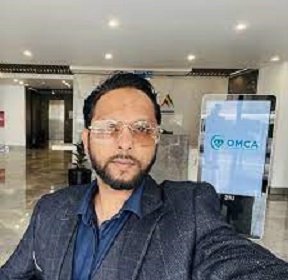
Title: Overseas Medical Care Assistance
Abstract:
Overseas Medical Care Assistance (OMCA) Ltd, founded by Mr. Dilloo Mohammad Tasleem, stands as a global facilitator in medical tourism and patient care coordination. OMCA bridges the gap between patients seeking high-quality healthcare abroad and internationally accredited medical institutions offering advanced treatments. The organization focuses on simplifying cross-border medical travel by providing end-to-end support—ranging from hospital selection and appointment scheduling to travel logistics, accommodation, and post-treatment follow-up.
Mr. Tasleem’s visionary approach emphasizes ethical medical facilitation, transparency, and personalized care. Through strategic collaborations with hospitals, insurance companies, and healthcare professionals, OMCA ensures that patients receive safe, affordable, and timely access to specialized medical services worldwide. His work contributes significantly to making global healthcare more accessible and reliable for patients across diverse backgrounds.
Biography:
Mr. Dilloo Mohammad Tasleem is the Chief Executive Officer and Founder of Overseas Medical Care Assistance (OMCA) Ltd, an internationally recognized organization dedicated to facilitating medical travel and cross-border healthcare services. With a deep passion for improving global access to quality medical care, Mr. Tasleem established OMCA to connect patients with world-class healthcare providers through a transparent and supportive process.

Title: Accreditation Frameworks & Global Hospital Metrics
Abstract:
The global healthcare landscape continues to evolve as patients increasingly seek high-quality care across borders. This presentation explores the pivotal role of accreditation frameworks and standardized hospital metrics in shaping patient trust, safety, and healthcare excellence worldwide. By harmonizing international benchmarks for quality and outcomes, healthcare providers can better align with global expectations and regulatory requirements. Renée-Marie Stephano will discuss how accreditation fosters transparency, drives continuous improvement, and supports sustainable growth in the medical tourism industry. Attendees will gain insights into how global hospital metrics serve as performance indicators that guide strategic decision-making, enhance patient experience, and strengthen international collaboration among healthcare institutions.
Biography:
Renée-Marie Stephano is the President of the Medical Tourism Association (MTA), USA, a globally recognized organization dedicated to advancing cross-border healthcare and patient mobility. With over two decades of leadership in healthcare globalization, Ms. Stephano has been instrumental in developing international standards and accreditation frameworks that ensure quality, safety, and ethical practices in medical tourism. She is also the Editor-in-Chief of the Medical Tourism Magazine and has authored several publications on international healthcare policy, hospital accreditation, and destination branding. Her expertise spans strategic consulting for governments, hospitals, and healthcare clusters worldwide, promoting collaboration and sustainability in global health systems.
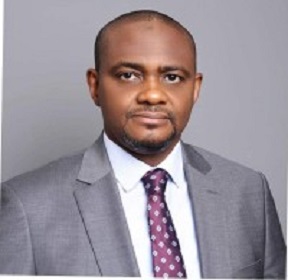
Haruna Abdullahi Elbinawi
NigeriaTitle: Medical Tourism: Economic Drain or Healthcare Gain? A Case Study of Nigeria's Healthcare Crisis and Leadership Accountability
Abstract:
Medical tourism, while offering patients access to advanced healthcare abroad, has become a significant economic and developmental challenge for Nigeria. This study critically examines the paradox of medical tourism as both a perceived healthcare solution and a contributor to national economic drain. Drawing upon data from Nigeria’s healthcare expenditure, patient outflows, and government policy reports, the paper highlights how inadequate local healthcare infrastructure and poor leadership accountability have fueled the exodus of patients seeking treatment overseas. The analysis reveals that billions of naira are lost annually, funds that could have strengthened domestic healthcare capacity. Furthermore, the study discusses how leadership inefficiency, corruption, and the lack of investment in human capital perpetuate Nigeria’s dependence on foreign medical systems. The paper concludes by proposing a leadership-driven framework aimed at revitalizing Nigeria’s healthcare sector through transparency, strategic investment, and policy reforms that prioritize local treatment options. By transforming medical tourism from an economic drain into a healthcare gain, Nigeria can reposition itself toward sustainable healthcare development and national resilience.
Biography:
Mr. Haruna Abdullahi Elbinawi is a public health researcher and healthcare policy analyst from Nigeria, with a strong interest in health systems management, leadership accountability, and healthcare financing in developing countries. His work focuses on the intersections of governance, healthcare access, and the socio-economic implications of medical tourism in Africa. Mr. Elbinawi has been involved in various health advocacy and research initiatives aimed at strengthening Nigeria’s healthcare delivery system and promoting evidence-based policy reforms. His academic and professional contributions reflect his commitment to fostering sustainable healthcare practices that benefit local communities while reducing the economic outflow associated with medical travel.
Speakers
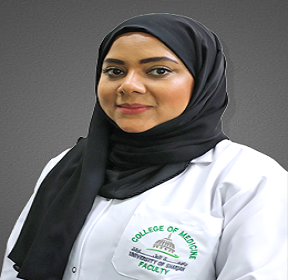
Wafa Alnakhi
USATitle: Patients from the United Arab Emirates seeking healthcare services overseas during 2009 – 2016: characteristics and motivational factors
Abstract:
The study examines the characteristics and motivational factors of patients from the United Arab Emirates (UAE) who sought healthcare services overseas between 2009 and 2016. Utilizing a mixed-methods approach, the research analyzes demographic data, treatment types, and patient-reported reasons for seeking care abroad. Findings indicate that a significant proportion of patients pursued specialized treatments not readily available in the UAE, including advanced surgical procedures, oncology care, and fertility treatments. Motivational factors influencing these decisions include perceived quality of care, shorter waiting times, access to advanced technology, and recommendations from healthcare professionals. The study highlights the implications for healthcare policy, patient education, and the development of domestic healthcare services to better meet patient needs and reduce the necessity for cross-border medical travel.
Biography:
Wafa Alnakhi is a public health researcher affiliated with the Johns Hopkins University Bloomberg School of Public Health, USA. Her research focuses on healthcare utilization patterns, patient behavior, and health system efficiency, with particular expertise in medical tourism and cross-border healthcare. Wafa has published extensively on factors influencing patient decision-making and strategies for optimizing healthcare delivery in both domestic and international contexts. She is committed to generating evidence that informs policy decisions and improves healthcare accessibility and quality for populations in the United Arab Emirates and beyond.

Cheurombo Pswarayi
AfricaTitle: Challenges in Medical Tourism
Abstract:
Medical tourism has rapidly evolved as patients increasingly seek quality healthcare beyond their home countries. While the sector offers significant opportunities for economic growth and access to specialized care, it faces numerous challenges. These include regulatory differences across countries, quality assurance and patient safety concerns, ethical considerations, and logistical barriers such as travel, insurance, and post-treatment care. In this session, Ms. Cheurombo Pswarayi will explore these challenges in depth, providing insights from her experience in leading Medtours Africa. Attendees will gain a clearer understanding of the complexities of medical tourism and strategies to navigate and overcome these barriers, ensuring safe, ethical, and efficient healthcare travel experiences.
Biography:
Ms. Cheurombo Pswarayi is the Founder and CEO of Medtours Africa, a leading organization facilitating medical tourism across the African continent. With extensive experience in healthcare management and international patient services, she has been instrumental in creating pathways that connect patients to high-quality medical care while addressing the unique challenges of cross-border healthcare. Ms. Pswarayi is recognized for her expertise in navigating regulatory, logistical, and ethical aspects of medical tourism, and she is committed to promoting safe, ethical, and accessible healthcare travel.
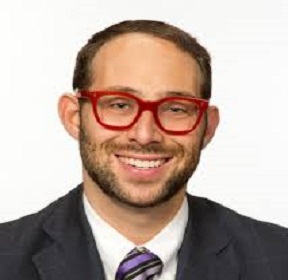
I. Glenn Cohen
USATitle: Global Standards in Patient Safety & Legal Protection
Abstract:
Patient safety remains a critical concern in healthcare systems worldwide, intersecting closely with legal frameworks that govern medical practice and patient rights. This presentation explores the development and implementation of global standards aimed at minimizing medical errors, improving clinical outcomes, and ensuring legal protection for both patients and healthcare providers. By analyzing international policies, regulatory practices, and case studies, the session highlights best practices for aligning patient safety initiatives with legal accountability. Participants will gain insight into effective strategies for harmonizing healthcare delivery with evolving legal and ethical standards, fostering a culture of safety and compliance in diverse healthcare settings.
Biography:
I. Glenn Cohen is a Professor of Law at Harvard Law School and faculty co-director of the Petrie-Flom Center for Health Law Policy, Biotechnology, and Bioethics. He is a leading scholar in health law, bioethics, and patient safety, with extensive research on the intersection of healthcare regulation, medical ethics, and legal protection. Professor Cohen has authored numerous articles and books addressing healthcare policy, medical liability, and the ethical dimensions of clinical practice. His work has significantly influenced both academic thought and policy development in patient safety and healthcare law.
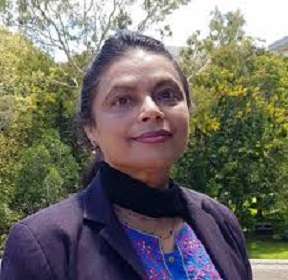
Anita Medhekar
IndiaTitle: Balancing Local Health System Pressures & Inbound Medical Tourism
Abstract:
Medical tourism offers significant opportunities for economic growth and global healthcare collaboration, but it also poses challenges for local health systems, particularly in resource allocation, patient care, and workforce management. This presentation explores strategies for balancing the demands of inbound medical tourism with the needs of domestic patients. Drawing on case studies and research from India, it highlights approaches to optimize healthcare delivery, ensure equitable access, and sustain high-quality services for all patients. Attendees will gain insights into policy frameworks, operational best practices, and innovative models that can help health systems effectively manage the dual pressures of local demand and international patient care.
Biography:
Anita Medhekar is a leading researcher at the Center for Medical Tourism Research, India, specializing in the intersection of healthcare systems and global patient mobility. With extensive experience in analyzing the impact of medical tourism on local healthcare infrastructure, she focuses on strategies that enhance system efficiency while maintaining quality care. Her work bridges policy, operational management, and international healthcare trends, making her a recognized expert in sustainable medical tourism practices.
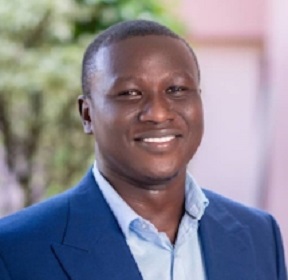
Daniel Amobtiwon Amoatika
South AfricaTitle: An Evaluation of Cholera Surveillance System in the Ga East Municipality, Accra
Abstract:
Cholera remains a significant public health challenge in Ghana, particularly in urban municipalities such as Ga East. Effective surveillance systems are essential for timely detection, prevention, and control of outbreaks. This study evaluates the cholera surveillance system in the Ga East Municipality, assessing its core and support functions, including data collection, reporting, laboratory confirmation, and response mechanisms. Mixed-methods approaches, including key informant interviews, review of surveillance records, and field observations, were employed. The evaluation identified strengths such as timely reporting and community engagement, as well as gaps including limited laboratory capacity and challenges in data completeness. Recommendations are provided to enhance the effectiveness and responsiveness of the surveillance system, thereby improving cholera prevention and control efforts in the municipality.
Biography:
Daniel Amobtiwon Amoatika is a researcher and public health professional affiliated with the University of KwaZulu-Natal, School of Laboratory Medicine and Medical Sciences, Durban, South Africa. His research focuses on infectious disease surveillance, epidemiology, and public health system strengthening. Daniel has contributed to studies on outbreak detection, disease prevention strategies, and health systems evaluation in both urban and rural contexts. He is committed to applying evidence-based approaches to improve disease surveillance and public health outcomes in Africa.
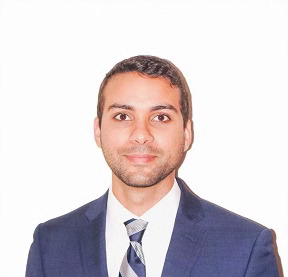
Ahmed El-Sayed
UAETitle: Role of AI in Demand Forecasting for Medical Travel
Abstract:
The medical travel industry is experiencing rapid growth, driven by globalization, advancements in healthcare, and increasing patient mobility. Accurate demand forecasting is critical for healthcare providers, insurers, and travel facilitators to optimize resource allocation, reduce operational costs, and enhance patient experience. Artificial Intelligence (AI) offers innovative approaches to predict trends, patient inflows, and treatment demands by analyzing large datasets from historical records, demographic patterns, and global health trends. This presentation explores the role of AI in medical travel demand forecasting, highlighting predictive models, machine learning algorithms, and real-world applications. By leveraging AI, healthcare stakeholders can make informed decisions, improve service planning, and adapt to dynamic patient needs, ultimately fostering a more efficient and patient-centric medical travel ecosystem.
Biography:
Ahmed El-Sayed is a healthcare analytics specialist at Cleveland Clinic, UAE, focusing on leveraging AI and data-driven solutions to optimize healthcare operations and patient services. With extensive experience in healthcare management and predictive analytics, Ahmed has been instrumental in implementing AI-based tools for patient demand forecasting, resource planning, and operational efficiency in medical travel and hospital systems. His work bridges the gap between advanced technology and patient-centric care, contributing to the development of smarter, data-informed healthcare strategies.
Poster

Hasti Talebi
IranTitle: Stop Political Bias in Health Tourism
Abstract:
Health tourism is a rapidly growing global sector, offering patients access to medical services beyond their home countries. However, political biases and geopolitical tensions can significantly influence patient access, destination choice, and healthcare collaborations. This presentation explores the impact of political bias on health tourism, including restrictions on cross-border medical travel, limitations in insurance coverage, and the challenges faced by healthcare providers in politically sensitive regions. Strategies for mitigating these biases, promoting equitable access, and fostering an inclusive health tourism environment will be discussed. The session aims to highlight the importance of separating healthcare from political influence to ensure patient-centered care and international collaboration in medical services.
Biography:
Hasti Talebi is a researcher at Karaj Azad University, Iran, specializing in health tourism and global healthcare accessibility. Her work focuses on analyzing the effects of political and socio-economic factors on international medical travel and developing strategies to enhance equitable access to healthcare services. Hasti has contributed to multiple publications and conferences, advocating for patient-centered approaches and the depoliticization of global health tourism.
Keynote Forum
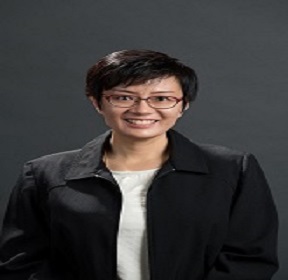
Mei Ling Tan
SingaporeTitle: Wellness Tourism & the Holistic Healing Revolution
Abstract:
The global wellness tourism sector has experienced unprecedented growth as travelers increasingly seek experiences that promote physical, mental, and spiritual well-being. This session explores the transformative power of holistic healing approaches in the context of wellness tourism. Dr. Mei Ling Tan will examine emerging trends, including integrative therapies, personalized wellness programs, and the role of digital health innovations in enhancing the traveler’s journey. Attendees will gain insights into how wellness destinations can effectively merge medical expertise with holistic practices, creating impactful, health-oriented experiences that meet the evolving expectations of global wellness travelers.
Biography:
Dr. Mei Ling Tan is a distinguished healthcare professional at the National University Hospital, Singapore, specializing in integrative medicine and wellness-focused healthcare initiatives. With extensive experience in patient-centered care, Dr. Tan has been at the forefront of promoting holistic health solutions that bridge conventional medicine with complementary wellness practices. Her work emphasizes preventive care, mental well-being, and the integration of wellness principles into everyday life. Dr. Tan is a passionate advocate for wellness tourism and has contributed significantly to research and programs that enhance the holistic healing experience for both patients and global travelers.
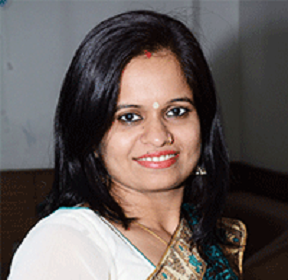
Anu Rai
IndiaTitle: Medical tourism in India – How crowd-sourced platforms can help in informed-decision making?
Abstract:
Medical tourism in India has emerged as a rapidly growing sector, attracting patients from across the globe due to cost-effective treatments, high-quality healthcare facilities, and skilled medical professionals. However, one of the key challenges faced by international patients is making informed decisions regarding treatment options, hospitals, and healthcare providers. Crowd-sourced platforms, which leverage user-generated reviews, ratings, and shared experiences, offer a valuable solution to this challenge. This presentation explores how these platforms can empower patients with reliable, real-time information, enhance transparency, and improve decision-making in the medical tourism landscape. By analyzing existing platforms and highlighting best practices, the session aims to provide insights into optimizing patient experiences and fostering trust in India’s medical tourism ecosystem.
Biography:
Anu Rai is a researcher and academician at Adamas University, India, with a focus on healthcare management and medical tourism. Her work explores the intersection of technology, patient experience, and healthcare decision-making. With a keen interest in digital platforms and their impact on the healthcare sector, she has contributed to multiple research studies on patient engagement, healthcare accessibility, and innovation in medical services. Anu is passionate about leveraging technology to improve informed decision-making in medical tourism and enhance the overall patient journey.
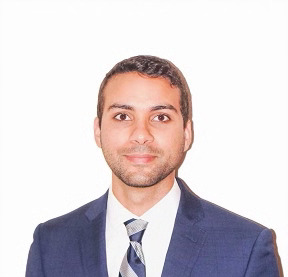
Ahmed El-Sayed
UAETitle: AI & Data Analytics for Optimizing the Patient Journey
Abstract:
The healthcare landscape is rapidly evolving with the integration of Artificial Intelligence (AI) and advanced data analytics. This session will explore how these technologies can transform the patient journey, from initial diagnosis to post-treatment follow-up. By leveraging predictive analytics, machine learning models, and real-time data insights, healthcare providers can enhance patient experiences, streamline clinical workflows, and improve outcomes. Attendees will gain a deeper understanding of practical AI applications in patient care, strategies for data-driven decision-making, and the future potential of AI to personalize healthcare delivery while reducing costs and inefficiencies.
Biography:
Ahmed El-Sayed is a leading healthcare data scientist at Cleveland Clinic, UAE, specializing in the application of Artificial Intelligence and data analytics in clinical settings. With extensive experience in patient-centered care and healthcare optimization, Ahmed focuses on leveraging technology to improve patient outcomes, enhance operational efficiency, and transform healthcare delivery. He has led multiple initiatives integrating predictive analytics and AI tools into the patient journey, enabling hospitals to provide personalized and efficient care. Ahmed is a frequent speaker at international conferences on digital health, AI in medicine, and healthcare innovation.
Speakers
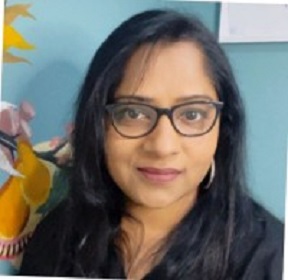
Lovely Ranganath
United Arab EmiratesTitle: Nutritional Myths – Gluten, Sweeteners, Organic & Much More
Abstract:
Nutrition is a field full of evolving research and often, widespread misconceptions. This session will explore common nutritional myths, including the roles of gluten, artificial and natural sweeteners, organic foods, and other popular dietary trends. Attendees will gain evidence-based insights to differentiate fact from fiction, understand the impact of these foods on overall health, and learn practical strategies for making informed dietary choices. The presentation aims to empower individuals and professionals to navigate nutrition with clarity and confidence.
Biography:
Lovely Ranganath is a seasoned professional at Dubai World Trade Centre Hospitality, United Arab Emirates, with extensive experience in nutrition, wellness, and hospitality management. Passionate about promoting evidence-based dietary practices, Lovely has dedicated her career to educating diverse audiences on health, wellness, and nutritional literacy. She combines practical knowledge with a deep understanding of food trends to help individuals make informed lifestyle choices.
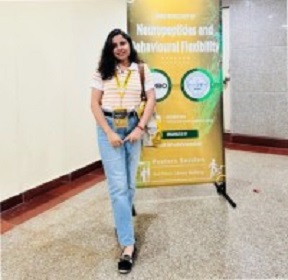
Ananya Kapoor
IndiaTitle: Integrating Spa, Ayurveda & Holistic Care in Medical Travel
Abstract:
Medical travel is evolving beyond conventional treatments, with wellness tourism emerging as a key driver in patient experience and satisfaction. Integrating spa therapies, Ayurveda, and holistic care into medical travel programs offers a comprehensive approach to healing that addresses physical, mental, and emotional well-being. This presentation explores how Kerala’s rich heritage in Ayurvedic medicine, combined with state-of-the-art spa facilities and holistic care practices, creates an enriched patient journey that promotes faster recovery, reduces stress, and enhances overall satisfaction. Case studies and practical frameworks will be shared to illustrate effective strategies for healthcare providers, travel facilitators, and wellness centers to seamlessly incorporate holistic modalities into medical travel services.
Biography:
Ananya Kapoor is a leading expert in medical and wellness tourism, affiliated with the Kerala Institute of Medical Tourism, India. With extensive experience in integrating traditional therapies like Ayurveda with modern spa and holistic care practices, Ananya has been instrumental in developing innovative medical travel programs that prioritize patient well-being and holistic healing. She is passionate about promoting Kerala as a global hub for wellness tourism and has contributed to numerous initiatives that bridge healthcare, wellness, and cultural heritage to enhance the international patient experience.
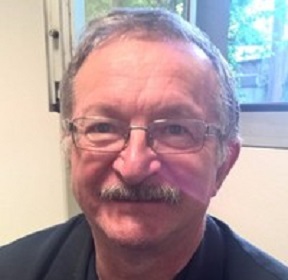
Mr. Jean-Paul Lefèvre
FranceTitle: Government–Private Partnerships in Health Tourism
Abstract:
Health tourism has emerged as a significant sector, blending medical services with travel experiences to promote wellness on a global scale. Government–Private Partnerships (GPPs) play a pivotal role in shaping this industry by fostering collaboration between public authorities and private stakeholders to ensure quality, accessibility, and innovation. This presentation explores the strategic frameworks, policy models, and success stories of GPPs in health tourism, highlighting how synergistic efforts between governments and private entities can enhance patient experience, boost economic growth, and strengthen a nation’s position as a preferred health tourism destination. Attendees will gain insights into practical approaches for establishing effective partnerships, navigating regulatory landscapes, and creating sustainable and high-value health tourism initiatives.
Biography:
Mr. Jean-Paul Lefèvre is a distinguished representative of the French Tourism Board, specializing in health and wellness tourism. With extensive experience in promoting France as a premier destination for medical and wellness travel, Mr. Lefèvre has been instrumental in developing programs that integrate healthcare services with tourism opportunities. His expertise lies in fostering Government–Private Partnerships to advance health tourism, ensuring quality, innovation, and sustainability. Through his work, he has contributed to positioning France as a leading destination for international patients seeking world-class medical care combined with enriching travel experiences.
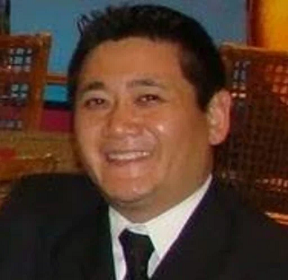
Dennis Minoru Fujita
BrazilTitle: Free Public Healthcare for Immigrants in Emerging Countries
Abstract:
Access to healthcare is a fundamental human right, yet immigrants in emerging countries often face significant barriers in obtaining essential medical services. This presentation explores the challenges and opportunities associated with providing free public healthcare to immigrant populations in developing and middle-income nations. Using a combination of policy analysis, case studies, and demographic data from multiple emerging countries, the study examines how social, economic, and political factors influence the accessibility and quality of healthcare for immigrants. Key findings highlight the role of inclusive health policies, community-based initiatives, and international cooperation in improving health outcomes. The discussion concludes with recommendations for policymakers to design equitable healthcare systems that ensure no individual is left behind, regardless of migratory status.
Biography:
Dennis Minoru Fujita is a researcher and lecturer at the University of São Paulo, Brazil, specializing in public health policy, social healthcare systems, and healthcare accessibility for vulnerable populations. His work focuses on developing strategies to improve equitable access to healthcare services, particularly for immigrant and underserved communities in emerging countries. Dr. Fujita has published multiple papers on healthcare policy, migration, and social determinants of health, contributing to both academic research and practical policy solutions. He actively collaborates with international organizations and governmental agencies to promote inclusive healthcare systems that prioritize equity and social justice.
Workshop

Title: Successful Medical Tourism Hubs: Thailand, Turkey, UAE
Abstract:
Medical tourism has become a rapidly growing sector globally, with countries like Thailand, Turkey, and the UAE emerging as premier destinations for quality, affordable, and specialized healthcare. This workshop will explore the strategies, policies, and practices that have positioned these nations as successful medical tourism hubs.
Our distinguished panel will provide insights into:
- Key factors driving medical tourism growth in these regions
- Innovative healthcare delivery models and patient experience optimization
- Collaboration between healthcare providers, governments, and tourism boards
- Challenges, regulatory considerations, and opportunities for global expansion
Participants will gain actionable knowledge to enhance medical tourism initiatives in their own regions and understand the benchmarks that define international success in this industry.
Panelists:
- Dr. Zaliha Mustafa (Malaysia MHTC)
- Dr. Mohan Chellappa (Johns Hopkins International)
- Ms. Renée-Marie Stephano (Medical Tourism Association)
Biography:
Dr. Zaliha Mustafa – Malaysia MHTC
Dr. Zaliha Mustafa is a leading expert in medical tourism development at the Malaysia Healthcare Travel Council (MHTC). She has played a pivotal role in positioning Malaysia as a globally recognized healthcare destination, facilitating partnerships between hospitals, tourism authorities, and international patients. Her work focuses on sustainable growth strategies, healthcare quality standards, and enhancing the patient experience for international travelers.
Dr. Mohan Chellappa – Johns Hopkins International, USA
Dr. Mohan Chellappa is a senior consultant at Johns Hopkins International, specializing in global healthcare partnerships and medical tourism strategy. With extensive experience in international patient management and cross-border healthcare collaboration, he has contributed to developing models that ensure high-quality care while attracting patients from around the world.
Ms. Renée-Marie Stephano – Medical Tourism Association, USA
Ms. Renée-Marie Stephano is a renowned advocate and strategist in the global medical tourism industry, representing the Medical Tourism Association. She brings a wealth of knowledge in healthcare travel trends, international marketing, and patient engagement strategies, supporting countries and healthcare providers in becoming preferred destinations for medical travelers.
Poster
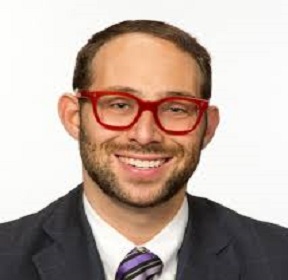
I. Glenn Cohen
USATitle: Patient Safety, Privacy & Legal Challenges in Cross-border Care
Abstract:
The rise of cross-border healthcare—whether through medical tourism, telemedicine, or international patient referrals—presents unique challenges for patient safety, privacy, and legal accountability. This session explores the complex legal and regulatory landscape surrounding cross-border care, including variations in safety standards, data protection laws, and malpractice liability across jurisdictions. It will highlight key ethical and policy considerations, strategies for mitigating risk, and the evolving role of international law in safeguarding patients while enabling access to global healthcare services. Attendees will gain insights into best practices for maintaining patient trust, ensuring privacy, and navigating legal complexities in an increasingly interconnected healthcare environment.
Biography:
I. Glenn Cohen is a Professor of Law at Harvard Law School and Faculty Director of the Petrie-Flom Center for Health Law Policy, Biotechnology, and Bioethics. His research focuses on health law, bioethics, and the legal and policy challenges posed by emerging medical technologies. Professor Cohen has published extensively on issues including patient safety, privacy, medical malpractice, and cross-border healthcare. He is widely recognized as a leading authority on the intersection of law and global health, and his work informs policymakers, healthcare institutions, and legal scholars worldwide.

